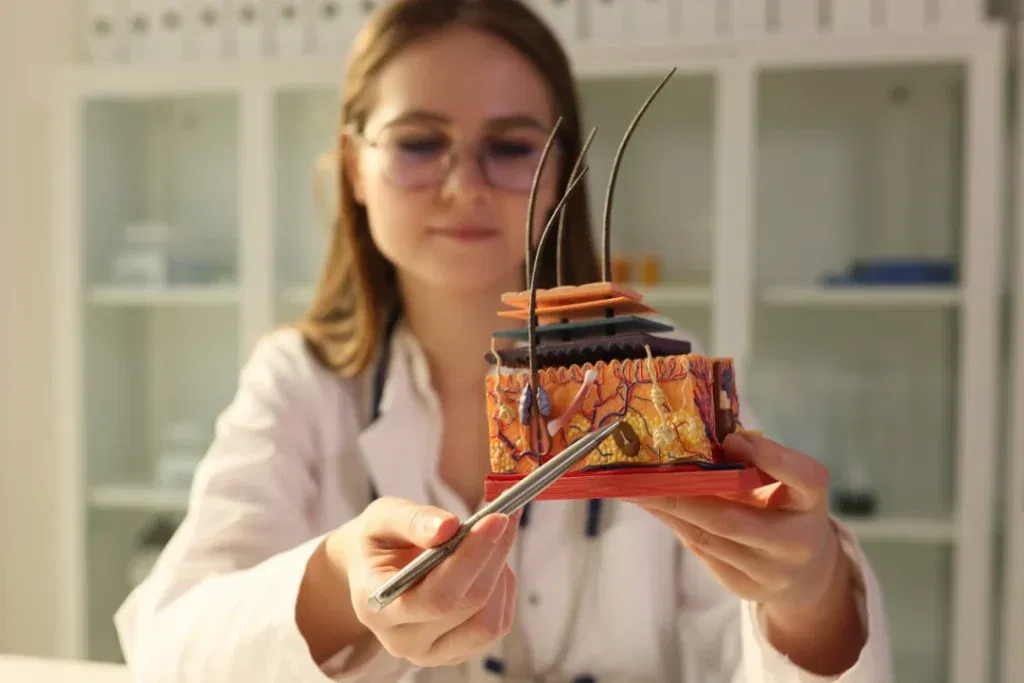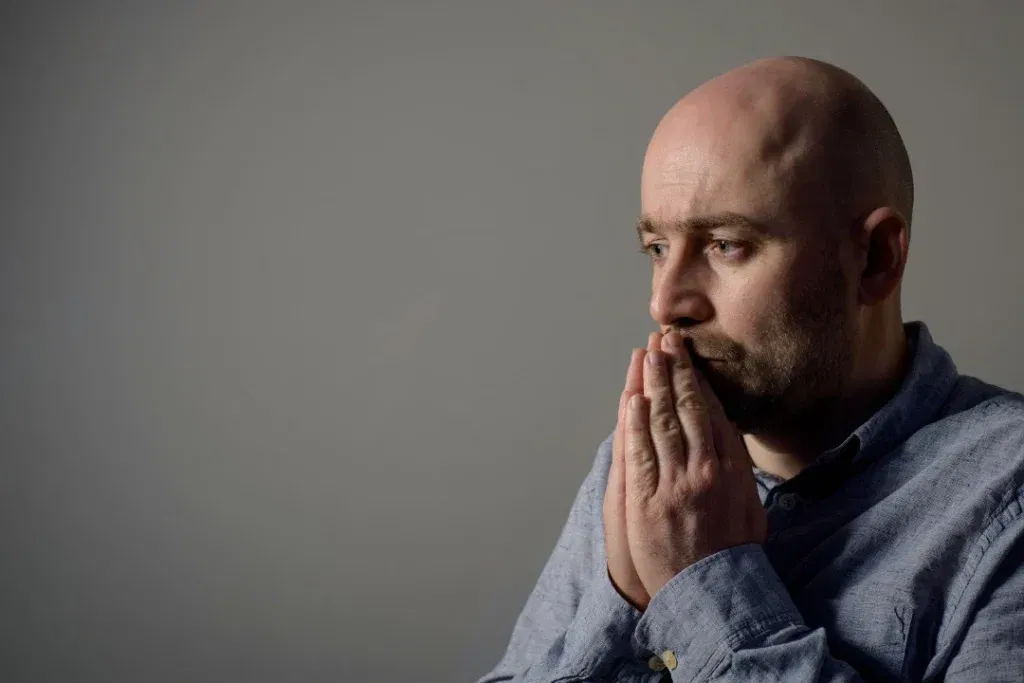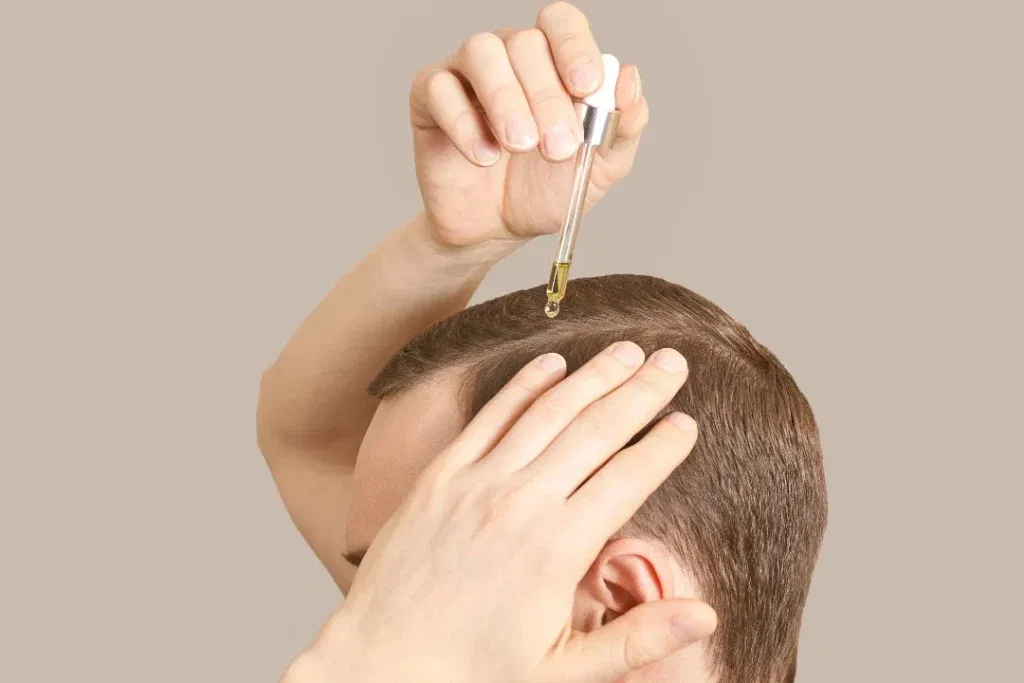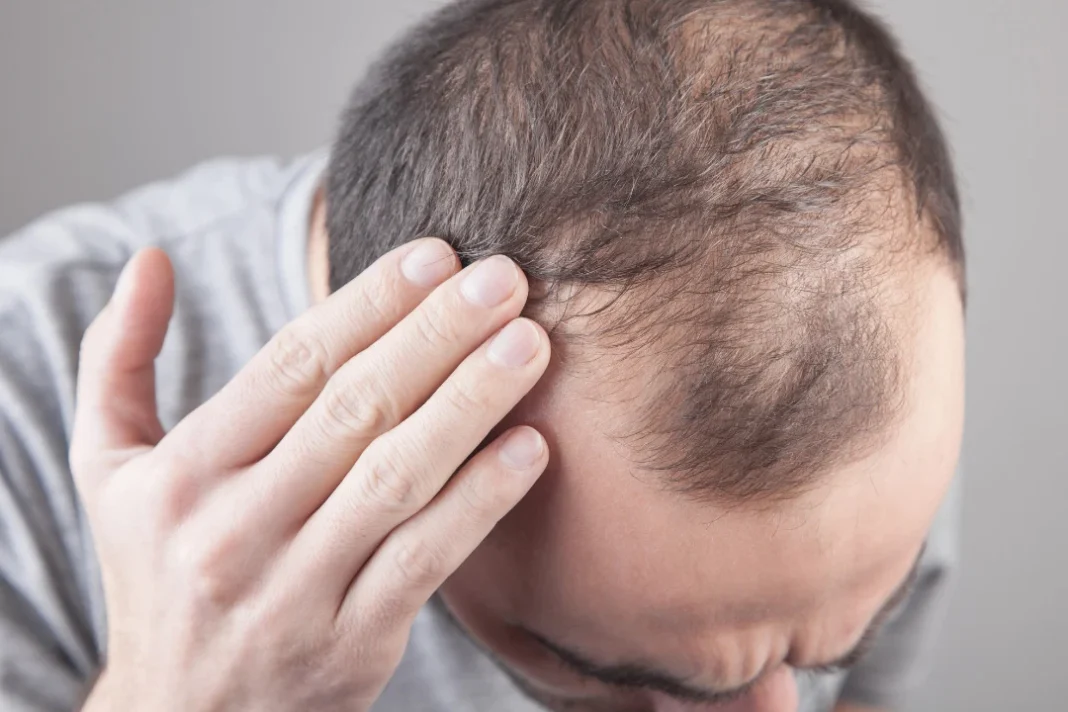You may have heard that hair loss is genetic and caused by DHT, a hormone derived from testosterone. But does testosterone cause hair loss? Read on to discover a promising hair loss solution based on a groundbreaking alternative theory.
Does testosterone cause hair loss?
In 1949 the answer was, “It’s part of the problem.”
In 1949, Anatomist James B. Hamilton demonstrated that the most common form of hair loss, androgenetic alopecia depended on the interaction of three factors: androgens (hormones including testosterone), genetics, and age. However, while Dr. Hamilton’s breakthrough discovery provided an understanding of hair loss and balding, it’s not the whole story – and there’s a new way of thinking about the role of testosterone in hair loss.
You May Also Like:
Does testosterone cause hair loss
Reishi Mushroom Benefits for Skin
Does Testosterone Cause Hair Loss? The Answer Might Surprise You is an original (HishealthMag) article.
How your hair grows – the all-important hair follicles
The basis for new hair growth relies on the health of your hair follicles. Hair follicles are found in the skin and are mini-organs shaped like small tubes consisting of several layers and structures. Natural hair growth happens in a cycle divided into three phases:
Phase 1. Anagen (growth) – the active phase in which hair cells in the hair follicle rapidly divide and new hair forms; it typically lasts anywhere from 2 to 7 years. The longer the anagen phase, the longer the hair can grow.
Phase 2. Catagen (transition) – this transitional phase marks the end of the active growth period; hair growth slows down, and the hair follicle shrinks. This phase typically lasts a few weeks.
Phase 3. Telogen (rest) – during the telogen phase, the hair follicle is dormant, and no new hair is produced.
Hair loss can occur when this cycle is disrupted, causing the anagen (growth) stage to stall. According to the current theory on androgenetic alopecia, testosterone supposedly affects this phase.

Why testosterone gets the blame for causing hair loss
Today’s hair loss science is mainly based on Dr. Hamilton’s research from 1949 explaining androgenic alopecia – here’s what happens:
DHT, or dihydrotestosterone, is a byproduct of testosterone and also a hormone; in fact, it’s more potent than testosterone. DHT is produced when an enzyme called 5-alpha-reductase (5AR) converts testosterone into DHT. This process occurs in various tissues throughout the body, including the skin, prostate gland, and hair follicles.
DHT binds to androgen receptors in hair follicles, which is normal and exactly how it’s supposed to work in your body. However, in sensitive hair follicles, DHT triggers miniaturization, leading to their shrinkage and eventual death. Additionally, high levels of DHT can shorten the growth cycle (anagen phase), leading to shorter and thinner hair. It’s thought that hair follicle sensitivity is genetic.
Modern hair loss treatments can treat symptoms but may not address the cause
Because of DHT’s negative effect on some sensitive hair follicles, hair loss products are typically aimed at blocking DHT. The list of over-the-counter shampoos, sprays, serums, and ointments is extensive; however, their effectiveness is often inconsistent. There are only two FDA-approved hair loss treatments:
Finasteride (Proscar and Propecia) was approved by the FDA as a hair loss treatment in 1997. Finasteride was not created for hair loss; it’s a medication prescribed to men to treat benign prostate cancer. As a hair loss treatment, Finasteride works by blocking the conversion of testosterone to DHT, reducing the amount of DHT in the scalp and preventing further hair loss. However, it only decelerates hair loss while being taken and may not always be effective. Side effects can include:
- Breast lumps, breast pain, or tenderness
- Brain fog
- Decreased libido
- Erectile dysfunction
- Decreased ejaculate volume.
- Depression
Minoxidil is the only approved (in 1988) FDA non-prescription topical solution initially developed as an oral prescription drug to treat high blood pressure. It is not a DHT blocker, and its exact mechanism of action is not yet fully understood. That said, Minoxidil is known to shorten the resting phase of the hair growth cycle and cause hair to enter the growing stage.

Perhaps you think you know the answer to: “Does testosterone cause hair loss?”
If you think the answer to “does testosterone cause hair loss?” is “yes” because it makes DHT – you are partially correct. However, remember that not all hair follicles are affected; only sensitive hair follicles cannot survive the effects of DHT. Therefore, the hair follicle may be at fault more than DHT, and if that’s true, then blocking the production of DHT is an extreme measure, especially given the possible adverse side effects of some hair loss treatments.
Additionally, DHT is a necessary hormone for men and women. While DHT is primarily known for its role in male development and sexual function, it also has other vital functions. For example, DHT has been shown to positively affect bone density, which may help prevent osteoporosis. It also appears to play a role in regulating mood and cognitive function.
Shifting the blame from testosterone and DHT to faulty hair follicles
A new way of thinking about hair loss is to strengthen and treat weak hair follicles rather than interfere with testosterone and DHT production. This alternative theory poses that unclogging DHT from hair follicles, nourishing them, and keeping the DHT from binding to them will allow the hair follicles to resume growing hair.
Does testosterone cause hair loss? John Goss, CEO and Founder of Adegen, a Los Angeles, California-based company, doesn’t think so. He believes in leaving DHT alone – other than getting and keeping it out of clogged hair follicles. Adegen’s line of hair loss treatments was born out of John seeking to solve his own hair loss – you can read his story here: Our Story – Adegen. He says that: “The real one and only cause of hair loss is caused by a restriction of blood flow to the hair follicle. And that hair loss is actually a disease just like cardiovascular disease, but it can be treated, prevented, and reversed to a great extent.”
Adegen’s product, ARB TOPICAL–5, contains a blend that includes 5% Minoxidil and a propriety linoleic–oleic organic fatty acid complex. Research suggests linoleic and oleic acid may help block DHT’s effects on hair follicles by competing for the androgen receptor. Specifically, these fatty acids bind to the androgen receptor but do not activate it in the way that DHT does, which prevents triggering the miniaturization of the hair follicle.

It’s time to reframe the question: “Does testosterone cause hair loss?”
For now, according to new thoughts about what causes hair loss, the most accurate answer to the question “does testosterone cause hair loss?” is “not entirely.” If it were the definitive cause, everyone with hair follicles would experience hair loss since DHT normally binds to hair follicles. At the moment, it appears that DHT only affects people genetically predisposed to have sensitive hair follicles.
Maybe it’s time to ask a new question: “Why are some hair follicles more sensitive to the DHT produced by testosterone?” Once this question is answered, hair loss treatments can be focused on leaving testosterone and DHT to their natural functions and developing healthier solutions to hair loss.
For further reference:
PubMed Central – Classifications of Patterned Hair Loss: A Review – PMC
NCBI Bookshelf – Physiology, Hair – StatPearls – NCBI Bookshelf
Cleveland Clinic – Androgens: Function, Measurement and Related Disorders
NBC News – What’s the science behind balding?
Science Daily – Hair Loss News — ScienceDaily
PubMed Central – Oleic Acid Nanovesicles of Minoxidil for Enhanced Follicular Delivery – PMC
Important Note: The information contained in this article (Does Testosterone Cause Hair Loss? The Answer Might Surprise You) is for general informational purposes only, and should not be construed as health or medical advice, nor is it intended to diagnose, prevent, treat, or cure any disease or health condition. Before embarking on any diet, fitness regimen, or program of nutritional supplementation, it is advisable to consult your healthcare professional in order to determine its safety and probable efficacy in terms of your individual state of health.
Regarding Nutritional Supplements Or Other Non-Prescription Health Products: If any nutritional supplements or other non-prescription health products are mentioned in the foregoing article, any claims or statements made about them have not been evaluated by the U.S. Food and Drug Administration, and such nutritional supplements or other health products are not intended to diagnose, treat, cure, or prevent any disease.





